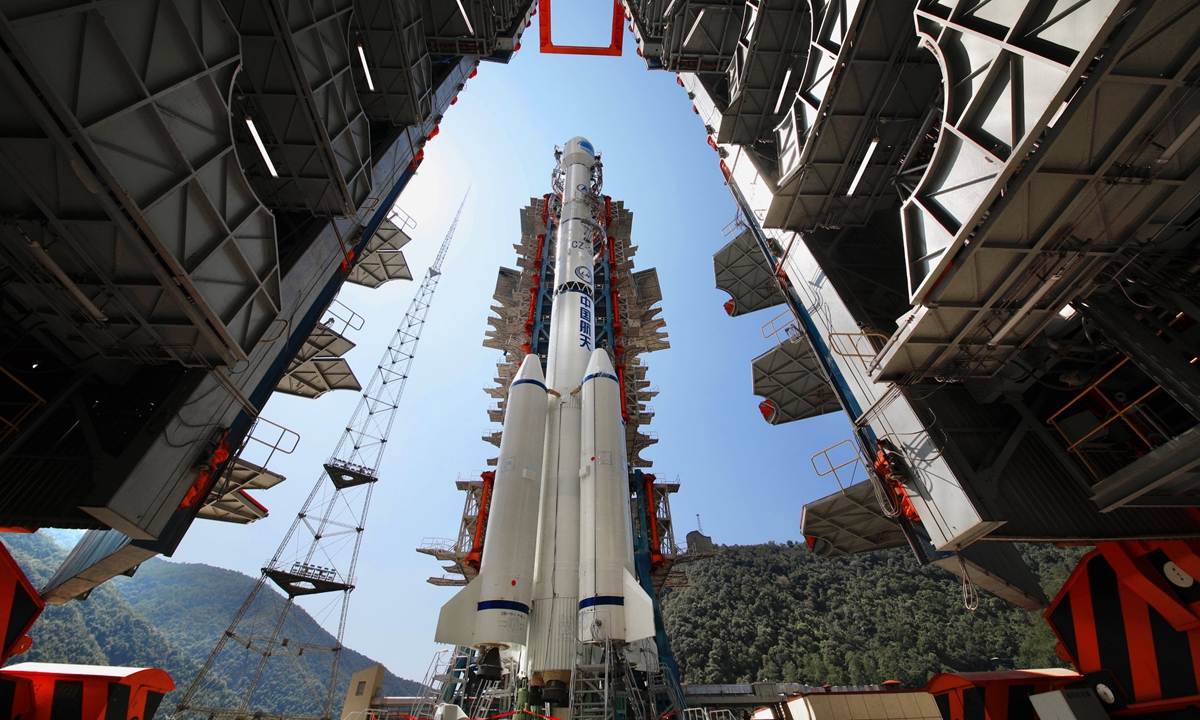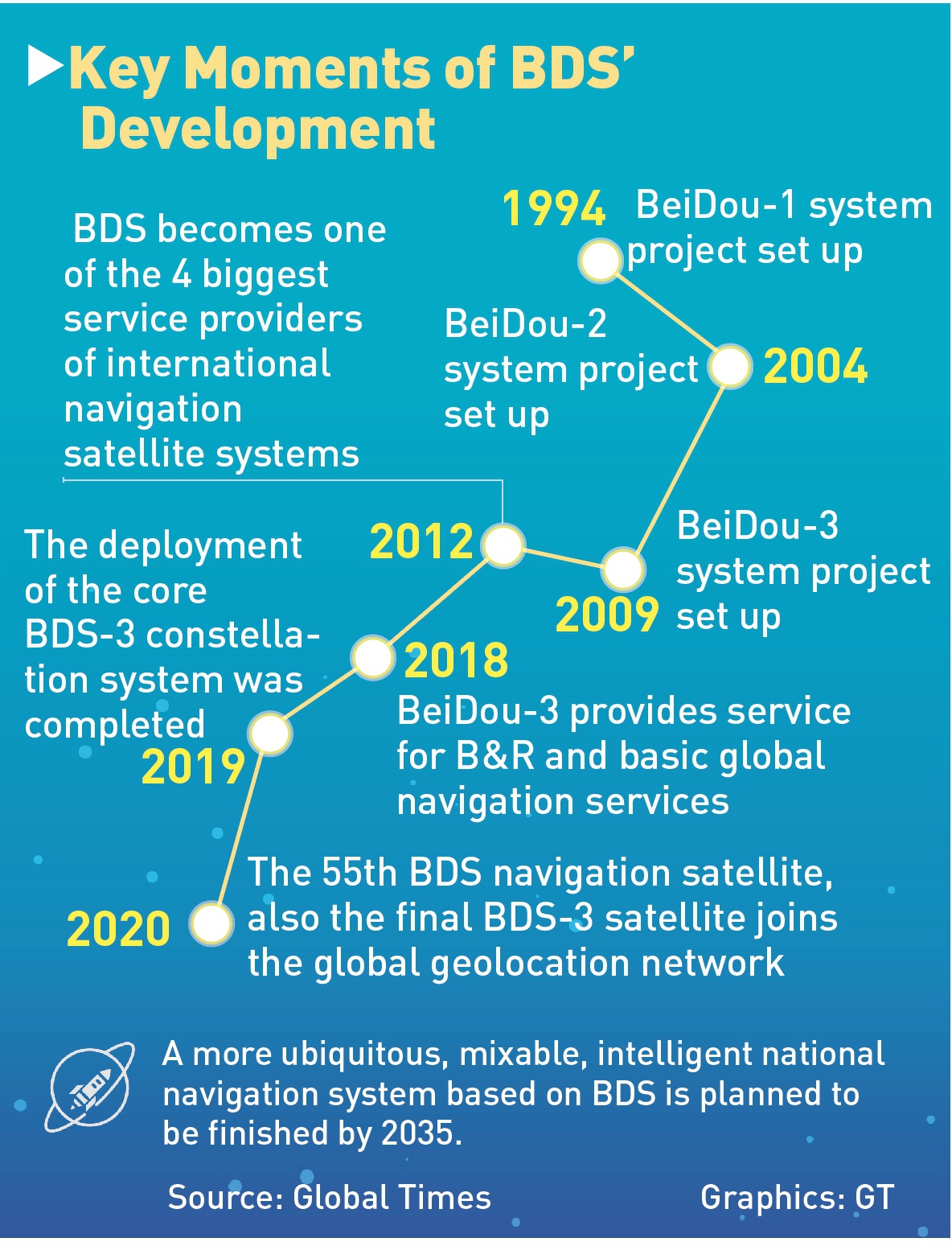Key components of China's navigation satellite system BDS-3 100% domestic
Source: Global Times Published: 2020/8/3 11:14:40

BeiDou-3 Navigation Satellite System
All key components of the Beidou-3 satellite are 100 percent made-in-China, showing the country’s ambitions in independently controllable technology breakthroughs.At a Monday press conference, spokesperson of the Beidou Navigation Satellite System (BDS)and director general of China Satellite Navigation Office, Ran Chengqi, said that more than 500 types of equipment component have been made in China and the domestic production rate of the BDS-3 satellite key components is 100 percent.
Ran noted that more than 400 agencies and 300,000 research personnel and technicians have committed to making advancements in more than 160 key core technologies, from inter-satellite links to high-precision atomic clocks.
The BDS is China’s largest space-based system and one of four global navigation networks, alongside the US’ GPS, Russia’s GLONASS and the European Union’s Galileo.
Providing navigation, positioning and data communications functions, the first-class performance of the BDS shows its high quality.
According to Ran, the BDS’ global positioning accuracy is better than 10 meters, with a timing accuracy better than 20 nanoseconds, and its performance in the Asia-Pacific region is even better.

Graphic:GT
The system’s services now cover more than 200 countries and regions, with more than 100 million users and 200 million daily services.
So far, BDS-related products have been exported to over 120 countries and regions, serving hundreds of millions of users. BDS-based services have been successfully applied in land mapping, precision agriculture, and digital construction in ASEAN, South Asia, Eastern Europe, West Asia and Africa.
Within China, the system has been integrated into essential national infrastructure, including electricity, finance and communications. Ran said the 28-nm-category chips used in the system are in mass production, and 22-nm-category chips will enter mass production soon.
Most smartphones sold in the domestic market support the BDS positioning function and smartphones supporting high-precision applications have been launched.
The BDS has been applied in transport infrastructure, such as the China-Europe Express Railway, the construction and operation of the high-speed train between Beijing and Zhangjiakou, and civil aviation.
The output of China’s satellite navigation and location-based services industry has been growing more than 20 percent annually on average, reaching 345 billion yuan ($49.47 billion) in 2019, and is expected to exceed 400 billion yuan in 2020, according to Ran.
Global Times
Posted in: SOCIETY